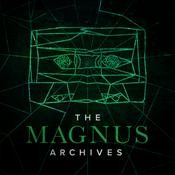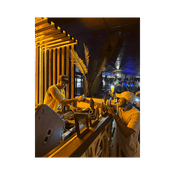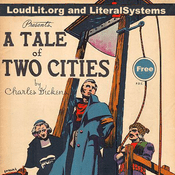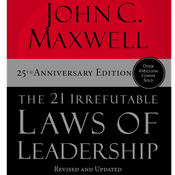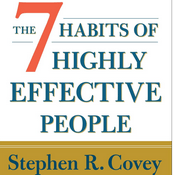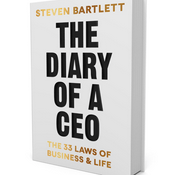8 episodes
- On this month’s episode of Future Tense Fiction, host Maddie Stone talks to Janelle Shane about her short story “The Skeleton Crew.”
The House of A.I. is a next-level haunted house: In it, a suite of advanced A.I.s read visitors’ facial expressions to generate perfectly tailored scares. Or at least, that’s what the marketing materials want you to believe. It turns out, the house is actually operated by a group of underpaid gig workers, tasked with posing as spooky A.I.s as they guide visitors through the mansion. When two gunmen sneak into the house in search of a famous rock artist who’s there visiting, things go south quickly—and everyone ends up really grateful for the humans behind the house’s spooky machines.
After the story, Maddie and Janelle discuss why the human workers behind A.I. are so often invisibilized—and why you should be suspicious when a company oversells its tech.
Guests: Janelle Shane is a research scientist. She writes about A.I. on her blog, aiweirdness.com, and she’s also the author of You Look Like a Thing and I Love You.
Story read by Kat Bohn
Podcast production by Tiara Darnell
You can skip all the ads in Future Tense Fiction by joining Slate Plus. Sign up now at slate.com/plus for just $15 for your first three months.
Hosted on Acast. See acast.com/privacy for more information. - On this month’s episode of Future Tense Fiction, host Maddie Stone talks to Andrew Silverman about his short story “Furgen.”
Tucker, the story’s canine protagonist, is the center of his owner Caro’s world. When Caro buys an A.I.-enabled dog trainer that promises to help both her and Tucker live their best lives, everything starts to fall into place—the A.I. takes care of Tucker when he’s sick, trains him to walk without a leash, and even helps Caro get a girlfriend. But as Tucker’s bond with the A.I. deepens, optimizing for their best lives starts to mean something much different than what Caro originally had in mind.
After the story, Maddie asks Andrew about how his own experiences as a dog owner—and a pediatric neurologist—influenced the story. Plus, Maddie talks with canine behavioral scientist Clive Wynne, who wrote a response essay to Andrew’s story, about whether a dog could really fall in love with a robot.
Guests: Andrew Silverman is a pediatric neurologist and the author of “Furgen.”
Clive Wynne is a professor of psychology and director of the Canine Science Collaboratory at Arizona State University. He is also the author of Dog Is Love: Why and How Your Dog Loves You.
Story read by Peggy O’Neal
Podcast production by Tiara Darnell
Hosted on Acast. See acast.com/privacy for more information. - On this month’s episode of Future Tense Fiction, host Maddie Stone talks to Matt Bell about his short story “Empathy Hour.”
In the story’s climate-change-ravaged future, society’s wealthiest are whisked away to luxurious, self-contained cities. Once there, they entertain themselves with a carefully crafted reality show meant to assuage their guilt about the climate refugees they’ve left behind. But then, someone breaks into their airbrushed world, lifting the lid on what hides underneath it.
After the story, Matt and Maddie discuss the promises and pitfalls of climate fiction–and why we want to feel empathy, but never too much.
Guest: Matt Bell is the author of several books, including the novel Appleseed, a New York Times Notable Book of 2021. He is a professor of creative writing at Arizona State University.
Story read by Josh Bloomberg
Podcast production by Tiara Darnell
You can skip all the ads in Future Tense Fiction by joining Slate Plus. Sign up now at slate.com/plus for just $15 for your first three months.
Check out AWS Insiders here: https://link.chtbl.com/awsinsiders?sid=podcast.futuretensefiction
Hosted on Acast. See acast.com/privacy for more information. - On this month’s episode of Future Tense Fiction, host Maddie Stone talks to Justina Ireland about her short story “Collateral Damage.”
The story follows a group of soldiers deployed alongside TED, the Army’s first self-aware combat drone. TED is relentlessly efficient, quickly outpacing its human counterparts—and leaving them worried for their jobs. But when a wrong call from the clunky robot puts soldiers’ lives at risk, they realize just how hard it is to program for battlefield experience.
After the story, Ireland shares how her own time in the military shapes her writing, and why tech dreamed up in D.C. rarely reflects the needs of soldiers on the ground.
Guest: Justina Ireland, a veteran and author of books including Dread Nation, Deathless Divide, and Ophie’s Ghosts
Story read by Joanne Lichtenstein
Podcast production by Tiara Darnell
Check out AWS Insiders here: https://link.chtbl.com/awsinsiders?sid=podcast.futuretensefiction
Hosted on Acast. See acast.com/privacy for more information. - On this month’s episode of Future Tense Fiction, host Maddie Stone talks to David Iserson about “This, but Again.” The story follows Marcus, who is forced to relive his life over and over again in a never-ending computer simulation. Thanks to a glitch, Marcus already knows everything that will happen—but he can change almost nothing. That is until he meets Sara, who helps him break from the simulation’s script. But that, as you might expect, is not without consequences.After the story, Iserson and host Maddie Stone discuss what it would really be like to live in a computer simulation (and why it may actually be more hopeful than dystopian).
Guest: David Iserson, film and television writer-producer and author of Firecracker, a novel
Story read by David Iserson
Podcast production by Tiara Darnell
Hosted on Acast. See acast.com/privacy for more information.
More Arts podcasts
Trending Arts podcasts
About Future Tense Fiction
Each month, Future Tense Fiction will bring you a dramatic telling of a short story exploring how tech that's emerging today could dramatically reshape tomorrow. Science journalist Maddie Stone will then have a conversation with the author about what inspired their writing, and their vision of the future. Hosted on Acast. See acast.com/privacy for more information.
Podcast websiteListen to Future Tense Fiction, Amapiano Mix and many other podcasts from around the world with the radio.net app
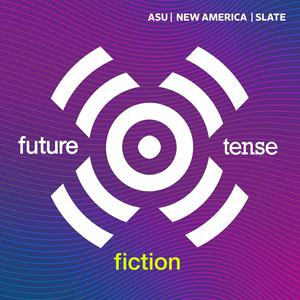
Get the free radio.net app
- Stations and podcasts to bookmark
- Stream via Wi-Fi or Bluetooth
- Supports Carplay & Android Auto
- Many other app features
Get the free radio.net app
- Stations and podcasts to bookmark
- Stream via Wi-Fi or Bluetooth
- Supports Carplay & Android Auto
- Many other app features


Future Tense Fiction
Scan code,
download the app,
start listening.
download the app,
start listening.



